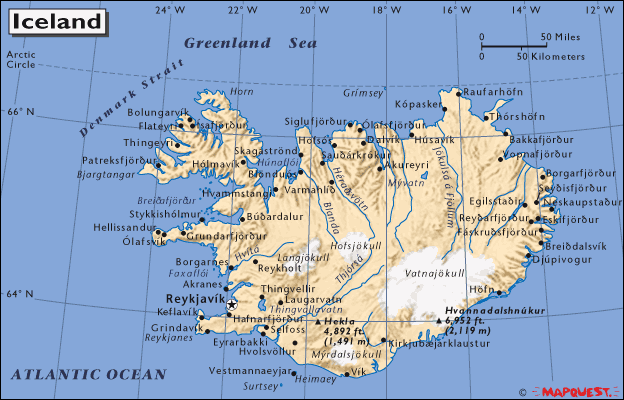
How did Iceland slip so silently into such utter collapse? Iceland’s economy, now toast, has led to a government on the brink of collapse. The UK’s Independent reports:
Iceland’s troubles reveal(ed) themselves during last week’s tumultuous events. Peaceful demonstrations began in Reykjavik’s main square, outside the Althing (parliament) building, had begun in October immediately after the crash. Last week they erupted in the worst riots since it became a founding member of Nato in 1949. Rocks were hurled at police and the Althing. Its windows were smashed and the building set alight. Over 130 protesters received treatment after police used tear gas to disperse the crowd, and one police officer was seriously injured.
On Friday morning, human rights campaigner and protest organiser Hordur Torfason told a chilling anecdote to illustrate the desperation many Icelanders are feeling. He had received a phone call from a man who said that four generations of his family had lost everything. “He wanted me to help them build a gallows in front of the parliament building,” says Torfason. “I asked him if this was to have some symbolic significance. ‘No,’ came the answer. ‘A member of my family wants to hang himself in public.'”
“I said I would help them but not in this way,” says Torfason. “But he killed himself two days ago.”
Red Cross employees and volunteers are working overtime to prepare for depression and desperation. The relief agency has expanded and is setting up support groups and activities for the unemployed. “One of the effects of long-term unemployment is depression,” says the agency’s Thor Gislason.
More people are attending church, he says, not just for spiritual succour, but because food is sometimes provided for a nominal charge. Soup kitchens, emblematic of Eastern bloc poverty, might be going too far. “We believe people will be too ashamed to stand in line publicly for food,” says Gislason, “so we will organise activities and volunteer work where food is involved instead.”
The article says that last week’s demonstration was the biggest public protest in Iceland’s history. Protestors want Prime Minister Geir Haarde to resign, the parliament dissolved, the constitution replaced with a new one, and investigations of politicians from the current administration. In other words, they are demanding a revolution.
Fortunately, nobody is starving or freezing on the street. But Iceland is clearly on the brink of either a major change or some kind of collapse. Its situation should serve as a warning to other countries sunk by the financial crisis. No place is immune to this kind of upheaval.
